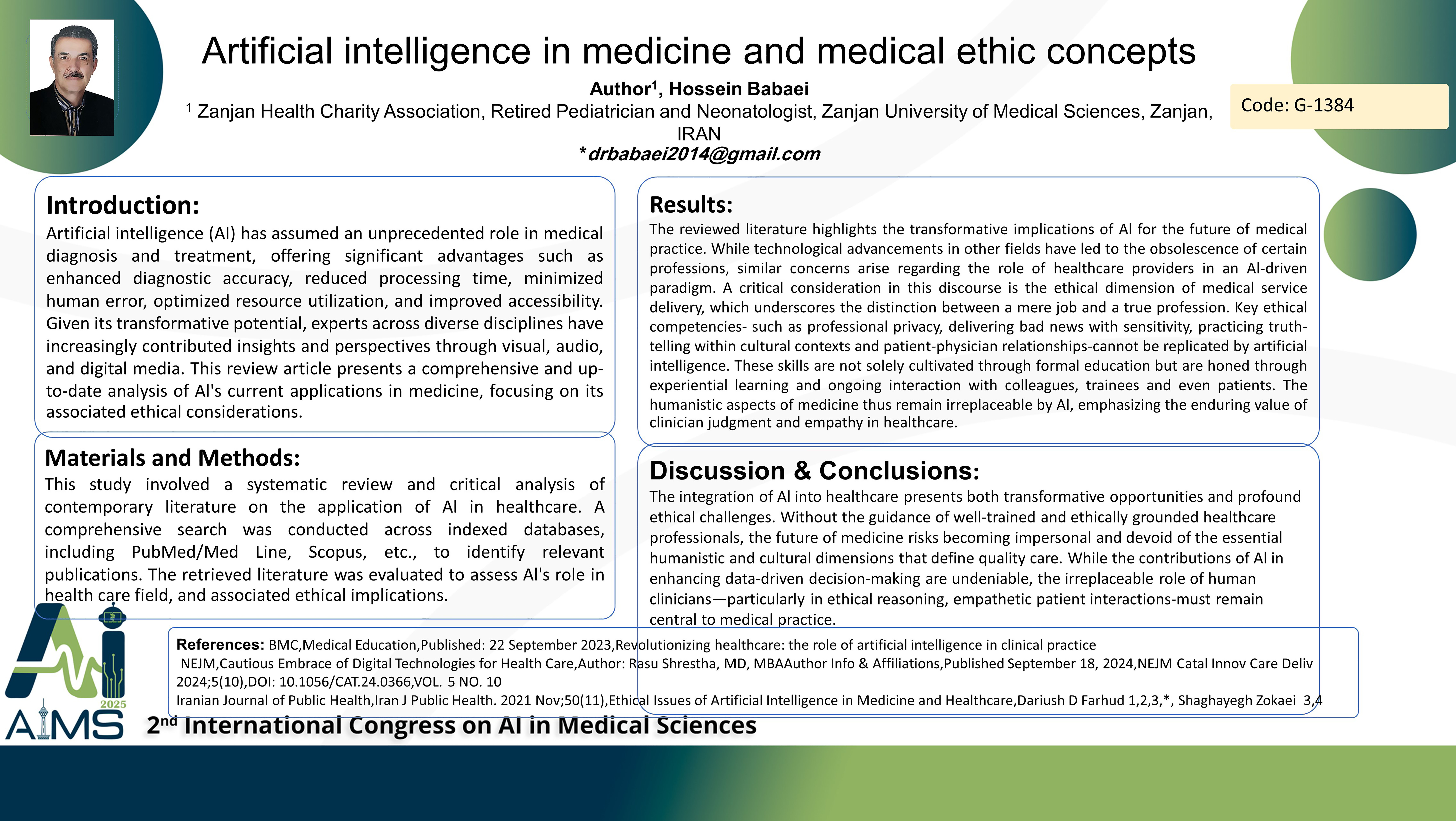Artificial intelligence in medicine and medical ethic concepts
Code: G-1386
Authors: Hossein Babaei * ℗
Schedule: Not Scheduled!
Tag: Health Policy, Law & Management in AI
Download: Download Poster
Abstract:
Abstract
Background and Aims: Artificial intelligence (AI) has assumed an unprecedented role in medical diagnosis and treatment, offering significant advantages such as enhanced diagnostic accuracy, reduced processing time, minimized human error, optimized resource utilization, and improved accessibility. Given its transformative potential, experts across diverse disciplines have increasingly contributed insights and perspectives through visual, audio, and digital media. This review article presents a comprehensive and up-to-date analysis of Al's current applications in medicine, focusing on its associated ethical considerations. Materials and Methods: This study involved a systematic review and critical analysis of contemporary literature on the application of Al in healthcare. A comprehensive search was conducted across indexed databases, including PubMed/Med Line, Scopus, etc., to identify relevant publications. The retrieved literature was evaluated to assess Al's role in health care field, and associated ethical implications. Results: The reviewed literature highlights the transformative implications of Al for the future of medical practice. While technological advancements in other fields have led to the obsolescence of certain professions, similar concerns arise regarding the role of healthcare providers in an Al-driven paradigm. A critical consideration in this discourse is the ethical dimension of medical service delivery, which underscores the distinction between a mere job and a true profession. Key ethical competencies- such as professional privacy, delivering bad news with sensitivity, practicing truth-telling within cultural contexts and patient-physician relationships-cannot be replicated by artificial intelligence. These skills are not solely cultivated through formal education but are honed through experiential learning and ongoing interaction with colleagues, trainees and even patients. The humanistic aspects of medicine thus remain irreplaceable by Al, emphasizing the enduring value of clinician judgment and empathy in healthcare. Conclusion: The integration of Al into healthcare presents both transformative opportunities and profound ethical challenges. Without the guidance of well-trained and ethically grounded healthcare professionals, the future of medicine risks becoming impersonal and devoid of the essential humanistic and cultural dimensions that define quality care. While the contributions of Al in enhancing data-driven decision-making are undeniable, the irreplaceable role of human clinicians—particularly in ethical reasoning, empathetic patient interactions-must remain central to medical practice.
Keywords
Artificial Intelligence, Health Services, Medical Ethics
